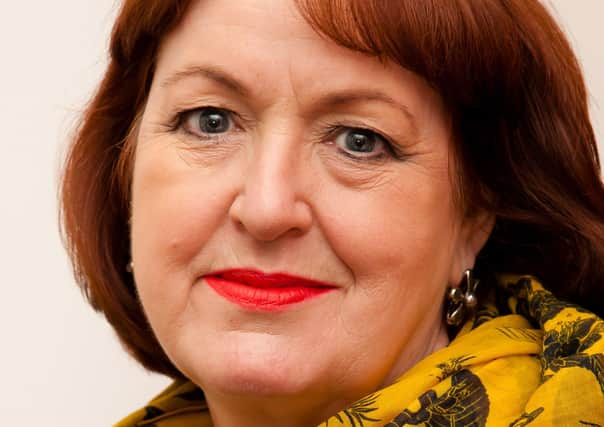Construction must not slip back into its old ways when the crisis is over – Lesley McLeod


There is, as the great American author Washington Irving said, a certain relief in change, even though it be from bad to worse. Certainly, there is something of that Eeyore-like acceptance in the distanced shop queues and isolated Zoom encounters making up our lives at the moment.
Nothing feels normal. The offices of the Association for Project Safety are closed – but work goes on as do the health and safety risk management duties our members carry out up and down the country. Everyone is getting used to conference calls but, although they provide some contact and continuity, they don’t make up for a mug of tea or a Friday treat before we are homeward bound for the weekend.
Advertisement
Hide AdAdvertisement
Hide AdMany have taken time out to give thanks for the sacrifice and courage of strangers working for us all in front-line services – be that health and care workers or the postal workers, bus drivers and shop assistants keeping the country moving. There are many foot-soldiers in this struggle and, while they may not be name-checked, they are no less appreciated.
Those of us who are in work – and fit – know we are the lucky ones. Some have families with whom they can share the experience – and its frustrations. Those of us living alone are, at least, used to some degree of isolation and ways to work around it when company is craved. Some are furloughed. Some having to accept benefits for the first time. But, first and foremost, we are well. And hope to stay that way.
But that can be challenging. In Scotland building sites were closed early but for all except vital and urgent work for the health service. Larger construction companies have – UK-wide – closed sites and looked for ways to retain staff. In England, some construction workers have kept on working while trying to observe social distancing and hygiene restrictions – it took weeks to agree guidelines. There will be time enough over coming months to consider which was the best approach.
And there you have it. What will life look like on the other side of the Covid-19 rainbows?
There will certainly be a financial price to pay. Businesses and the self-employed will need sustained help. And we must not let the cost of recovery fall most heavily on the shoulders of the lowest paid, many of whom have been stalwart in our support. Every country must weigh up if preparations were adequate and, the resulting price in lives lost, worth our apparent lack of co-ordinated planning.
But, this said, I believe we have a once in a lifetime opportunity to make things better.
Some will take stock of the lives they have led as enforced time off affords a moment to step down from the roundabout of work-home-work-weekend-repeat. Life may, suddenly, seem too short – and too sweet – to squander on things bringing no joy or fulfilment.
Others will take a punt at reshaping the jobs they had. Few of us will want to swap birdsong for a return to commuter traffic and the thunder of planes. Working at your own pace, and in your own home, may become more the norm than the occasional Friday or days waiting for the gas man to come.
Advertisement
Hide AdAdvertisement
Hide AdGreece, a country widely thought to have had – if such a thing exists – a good crisis, has shifted many things online, hastening by years the digitisation of government services. Prescriptions are now pinged by text and queues have been cut across the country.
Construction must not slip back into its old ways. For far too long unreconstructed and shameful practices have been, largely, ignored. The industry’s record in things like site hygiene is a disgrace.
I hope in future – where there is no proper sanitation or hot water – projects won’t be signed off and sites closed down. Health and safety can also be enhanced if more is constructed off-site. In time it will cost less and should be faster. But this will need a wholesale change in attitude and widespread adoption of computer modelling – something still implacably opposed by some.
But there can be no better time to make these changes.
Today, all our lives seem both irreversibly changed and simultaneously on hold. But we can do more than wait – we can plan and prepare for the future. The legacy of this time of challenge should be a better world in whatever small ways we can all work to achieve.
Lesley McLeod, CEO, Association for Project Safety
Comments
Want to join the conversation? Please or to comment on this article.